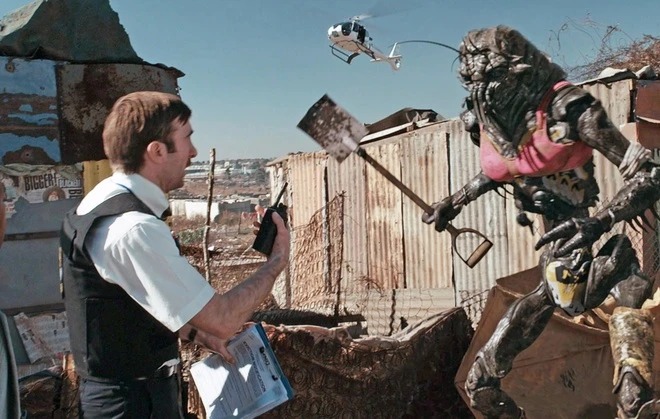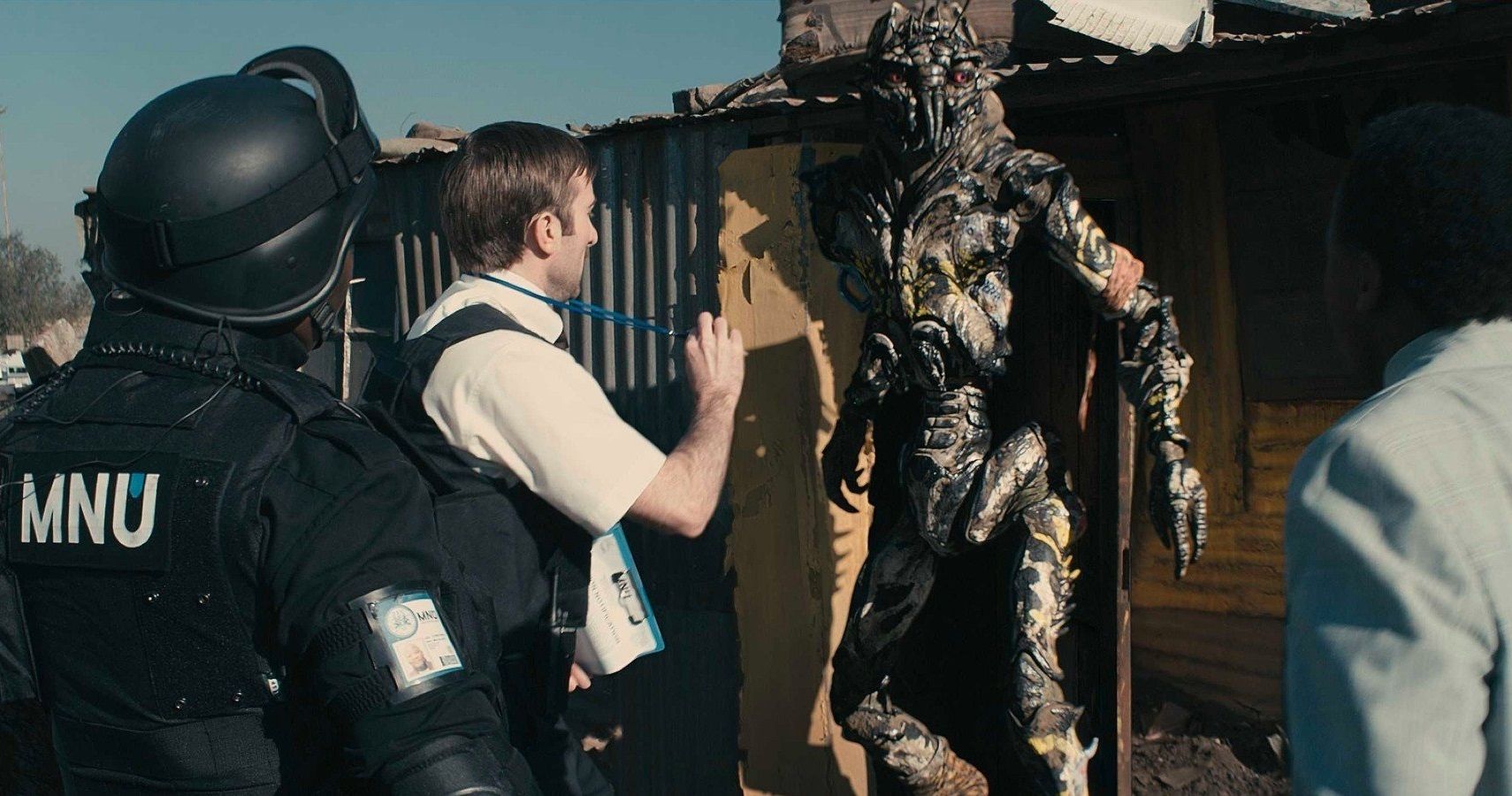District 9 (2009)

District 9 (2009), directed by Neill Blomkamp, is a groundbreaking science fiction film that combines elements of social commentary, political satire, and speculative fiction. Set in a dystopian future, the film presents a unique and thought-provoking narrative about extraterrestrial refugees and human prejudice. This essay explores the thematic depth, societal implications
District 9 is set in an alternate reality where a massive alien spacecraft has arrived over Johannesburg, South Africa, in 1982. The aliens, derogatorily referred to as “Prawns” due to their insect-like appearance, are initially met with hostility and eventually confined to a segregated area known as District 9. The film follows Wikus van de Merwe (played by Sharlto Copley), a bureaucrat working for the Multi-National United (MNU), the corporation responsible for overseeing the aliens’ containment.
As Wikus becomes entangled in a covert operation to relocate the Prawns from District 9 to a new, more distant internment camp, he inadvertently comes into contact with alien technology. This contact triggers a transformative process, turning him into a hybrid between human and alien. His subsequent struggle to navigate this new reality while evading the MNU and seeking a way to reverse his condition forms the crux of the film’s narrative.

At the heart of District 9 is a poignant exploration of segregation and displacement. The film draws clear parallels to historical and contemporary issues of apartheid, racial segregation, and the treatment of marginalized communities. The Prawns’ plight mirrors the experiences of displaced peoples and refugees, underscoring the inhumanity of systemic oppression.
The depiction of District 9 as a squalid, makeshift slum reflects the real-world conditions faced by marginalized groups. The alien’s forced confinement and the exploitation of their situation by the MNU highlight the themes of dehumanization and social exclusion. The film critiques the manner in which societal structures can perpetuate inequality and injustice, using the sci-fi genre as a lens through which to examine these issues.
Another significant theme in District 9 is the ethical dimension of corporate exploitation and the commodification of the “other.” The MNU’s actions are driven by profit and a desire to harness alien technology for military purposes. The exploitation of the Prawns for research and weaponization underscores the moral ambiguity of treating sentient beings as mere assets.

Wikus van de Merwe’s transformation into a hybrid highlights the ethical complexities of scientific experimentation and the consequences of human interference with alien life. His struggle to maintain his humanity while being subjected to the MNU’s ruthless agendas raises questions about identity, autonomy, and the ethical limits of scientific inquiry.
Wikus van de Merwe’s character arc is central to the film’s exploration of identity and transformation. Initially portrayed as a bureaucratic functionary lacking empathy, Wikus undergoes a profound personal transformation as he experiences the alien condition firsthand. His physical metamorphosis into a Prawn, combined with his growing awareness of the injustices faced by the alien community, leads to a radical shift in his perspective.
Wikus’s journey from a detached official to a compassionate and self-sacrificing figure exemplifies the theme of personal growth through adversity. His evolving relationship with the Prawns, particularly with Christopher Johnson (played by Jason Cope), who becomes a symbol of resistance and hope, highlights the possibility of empathy and solidarity across cultural and species boundaries.

District 9 employs a variety of narrative techniques to enhance its social commentary. The film’s use of a mockumentary style, with faux interviews and documentary footage, lends a sense of realism and immediacy to the story. This approach helps ground the fantastical elements of the narrative in a recognizable socio-political context, making the film’s critique of contemporary issues more impactful.
The blending of science fiction with real-world issues is a hallmark of District 9. The film’s speculative premise serves as a metaphor for real-life struggles with racism, segregation, and human rights abuses. By placing these issues within the framework of a sci-fi narrative, District 9 encourages viewers to reflect on the broader implications of these themes and their relevance to contemporary society.

District 9 (2009) is a compelling and thought-provoking film that uses the science fiction genre to explore deep and complex themes. Through its depiction of alien refugees, corporate exploitation, and personal transformation, the film offers a nuanced commentary on issues of segregation, displacement, and ethics. Neill Blomkamp’s innovative narrative techniques and the film’s powerful social critique make District 9 a significant contribution to both the sci-fi genre and the broader discourse on human rights and social justice. By challenging viewers to confront the realities of prejudice and inhumanity, District 9 stands as a testament to the power of speculative fiction to address pressing societal issues.











